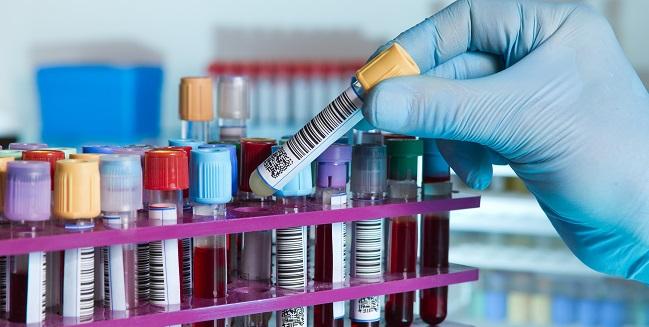Bempedoic Acid Safe, Lowers LDL in Hypercholesterolemia: Pooled RCT Data
Approved in February, the drug’s uptake has likely been hampered by the COVID-19 pandemic, Christie Ballantyne says.

On top of maximally-tolerated statins, adding bempedoic acid safely decreases LDL cholesterol compared with placebo in patients with hypercholesterolemia, according to pooled results from four recent randomized trials.
Bempedoic acid alone (Nexletol) and in tandem with ezetimibe (Nexlizet)—both oral, once-daily, non-statin LDL-lowering drugs manufactured by Esperion—were approved by the US Food and Drug Administration in February for the treatment of adults with heterozygous familial hypercholesterolemia (HeFH) or established atherosclerotic cardiovascular disease (ASCVD) who require additional lipid-lowering.
The approvals were based on findings from more than 3,600 patients enrolled in the randomized CLEAR Wisdom, CLEAR Harmony, CLEAR Tranquility, and CLEAR Serenity studies, all of which were conducted between 2016 and 2018. The current analysis combined patient data from these four studies.
“Pooled analyses such as that conducted in the present study provide a tool to address several questions not readily accessible by evaluating individual clinical trial data, such as the consistency of therapeutic efficacy associated with various treatments across patient subgroups and in the safety profile,” write Maciej Banach, MD, PhD (Medical University of Łódź, Poland), and colleagues in a JAMA Cardiology paper published online July 1, 2020.
Christie Ballantyne, MD (Baylor College of Medicine, Houston, TX), commenting for TCTMD, said the findings are not surprising but that it is helpful to have all of the data gathered together. “It's nice when you have a new therapy to get a picture of the overall efficacy,” he said.
Can people really get it or not? Christie Ballantyne
The “sweet spot” for bempedoic acid will likely be for patients who can tolerate at least minimal statin therapy, Ballantyne said. However, the timing of the release of both drugs immediately before the COVID-19 pandemic relegated cardiology clinics to close or go virtual has affected its dispersal.
“What a challenging time to come out with a new therapy. . . . Not everybody's aware that the drug is out, so I think we'll see more uptake as people become aware of it,” he said. “The other question is going to end up being [whether they’re] successful in regards to having good formulary access, because some of our problems with new therapies have been that we haven't had access. They say that they have addressed this, but you don't really know until you try in multiple plans: can people really get it or not?”
A representative from Esperion confirmed that the company has secured 50% commercial coverage and over 20% Medicare Part D coverage for Nexletol.
Pooled Data
The study included 3,623 patients—3,009 with ASCVD and/or HeFH receiving maximally tolerated statins and 614 with statin intolerance—who were randomized to treatment with once-daily bempedoic acid 180 mg or placebo in a 2:1 fashion between 12 and 52 weeks. The mean age was 65.5 years.
After 12 weeks in the ASCVD/HeFH group, bempedoic acid lowered LDL cholesterol by 16%, while those treated with placebo experienced a 1.8% increase (P < 0.001). The same pattern was seen for those with statin intolerance (−23.0% vs 1.5%; P < 0.001). These differences were sustained at follow-up with LDL-cholesterol reductions of 12.7% and 22.2%, respectively, for the ASCVS/HeFH (week 52) and statin intolerant (week 24) cohorts.
Across the board, bempedoic acid led to drops in non-HDL cholesterol, total cholesterol, apolipoprotein B, and high-sensitivity C-reactive protein levels compared with placebo, which led to increases in these measures from baseline.
Treatment-emergent adverse events occurred at a similar rate with bempedoic acid (73.1%) and placebo (72.5%). While the most common of these, including nasopharyngitis, myalgia, and urinary tract infection, did not differ between the treatment groups, those who received bempedoic acid were more likely to report pain in extremity (3.1% vs 1.8%), increased blood uric acid level (2.1% vs 0.5%), hyperuricemia (1.7% vs 0.6%), gout (1.4% vs 0.4%), decreased glomerular filtration rate (0.7% vs < 0.1%), and increased hepatic enzyme levels (2.8% vs 1.3%). On the other hand, those in the placebo arm were more likely to report new-onset or worsening diabetes (4.0% vs 5.6%).
The fully enrolled, randomized CLEAR Outcomes study, designed to examine longer-term outcomes of bempedoic acid use in more than 14,000 statin-intolerant patients with or at high risk for cardiovascular disease, will provide the next large data set for this drug. However, results aren’t due out until at least 2022
Yael L. Maxwell is Senior Medical Journalist for TCTMD and Section Editor of TCTMD's Fellows Forum. She served as the inaugural…
Read Full BioSources
Banach M, Duell PB, Gotto AM, et al. Association of bempedoic acid administration with atherogenic lipid levels in phase 3 randomized clinical trials of patients with hypercholesterolemia. JAMA Cardiol. 2020;Epub ahead of print.
Disclosures
- Banach reports receiving personal fees from Esperion Therapeutics during the conduct of the study; receiving grants, personal fees, or nonfinancial support from Abbott/Mylan, Abbott Vascular, Amgen, Daiichi Sankyo, Esperion Therapeutics, Krka, Eli Lilly and Company, Merck Sharp & Dohme, Novo Nordisk, Polpharma, Polfarmex S.A., Regeneron Pharmaceuticals, Resverlogix Corp, Sanofi-Aventis, Servier Laboratories, and Valeant Pharmaceuticals outside the submitted work.
- Ballantyne reports receiving institutional research grants for bempedoic acid trials and serving as a consultant for Esperion.


Comments